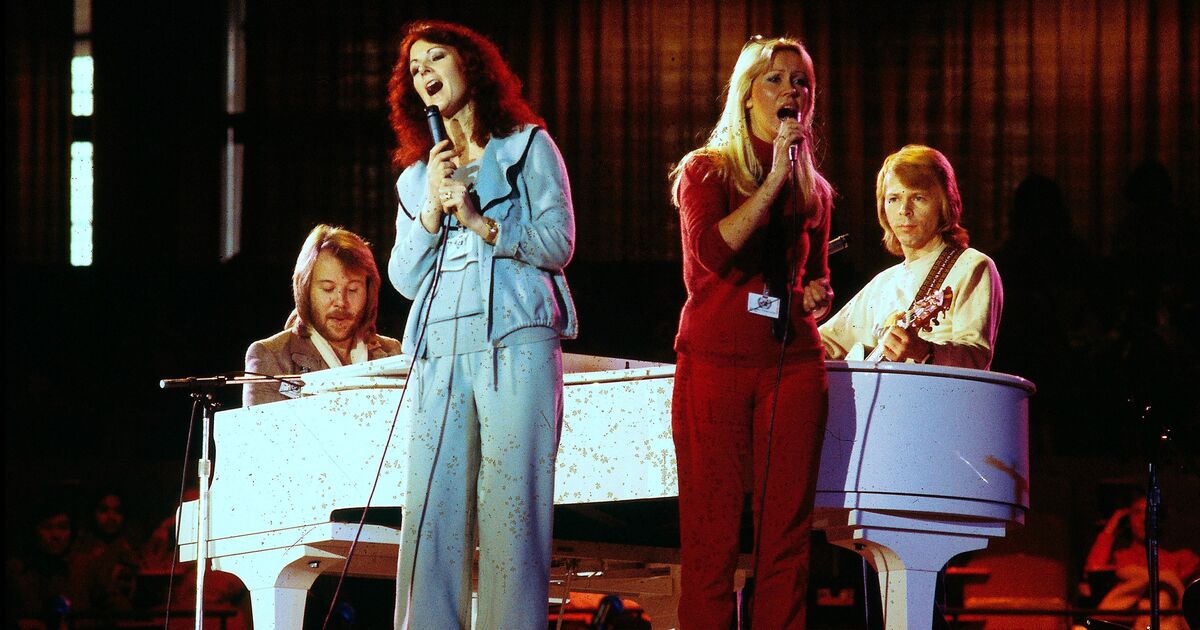ABBA's Waterloo: Eurovision Triumph Over Film Star, 1974
Forty-nine years ago, a Swedish pop group took the Eurovision Song Contest by storm, catapulting them to global superstardom. Their winning song? "Waterloo." But the story behind ABBA's victory is richer and more compelling than just a catchy tune.
This year marks the 49th anniversary of ABBA's iconic Eurovision win, a moment that irrevocably changed the trajectory of pop music history. Let's delve into the details of this legendary performance and the fascinating context surrounding it.
The Song: A Masterpiece of Pop Perfection
"Waterloo," a song brimming with energy and infectious melody, was a calculated risk. It marked a departure from the more ballad-oriented style prevalent in Eurovision at the time. Benny Andersson and Björn Ulvaeus, the songwriting duo behind ABBA, infused the song with a powerful blend of pop, disco, and even a touch of hard rock, a surprisingly modern sound for 1974. The lyrics, about the bittersweet surrender of love, resonated with audiences across Europe.
- Catchy Melody: The instantly recognizable melody is arguably the song's greatest strength. It's simple yet powerful, unforgettable and endlessly hummable.
- Dynamic Performance: ABBA's performance in Brighton, England, was electrifying. Their stage presence, charismatic and polished, captivated the audience and viewers alike. The choreography, including Agnetha Fältskog and Frida Lyngstad's iconic synchronised movements, added another layer of visual appeal.
- Unique Sound: In a field of primarily ballad-heavy entries, "Waterloo" stood out with its unique blend of genres and its high energy.
The Competition: A Star-Studded Lineup
ABBA's victory wasn't a walk in the park. They faced stiff competition from other talented artists, including Olivia Newton-John, representing the UK. The future Grease star performed "Long Live Love," a poignant ballad that, while beautiful, lacked the infectious energy of "Waterloo." This highlights the strategic brilliance of ABBA's choice of song and performance. The competition was truly fierce, making ABBA’s win all the more remarkable.
The Aftermath: From Eurovision to Global Icon Status
Winning Eurovision acted as a rocket launcher for ABBA's career. "Waterloo" topped charts across Europe and beyond, establishing them as a global force. The song became their signature hit, paving the way for a string of further successes, including "Dancing Queen," "Mamma Mia," and "Fernando." Their Eurovision victory acted as a springboard to international fame, forever cementing their place in music history.
The Legacy of "Waterloo"
Today, "Waterloo" remains one of the most recognizable and beloved Eurovision songs of all time. It's a testament to the power of a well-crafted song, a captivating performance, and a bit of strategic brilliance. The song continues to be played and enjoyed globally, proving its timeless appeal.
Want to revisit the magic? You can easily find ABBA's winning Eurovision performance on YouTube! It's a must-see for any music lover.
(Keywords: ABBA, Waterloo, Eurovision, Eurovision Song Contest, 1974, Olivia Newton-John, Swedish pop, pop music history, Brighton, Benny Andersson, Björn Ulvaeus, Agnetha Fältskog, Frida Lyngstad)

